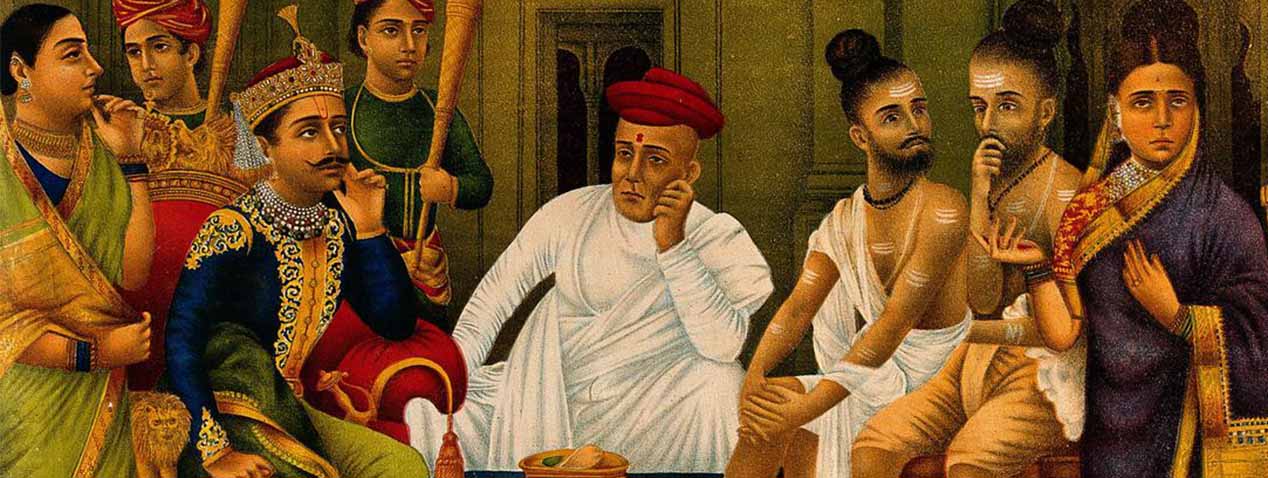Lesson 1
Dasharatha’s Choice

The Role of Dharma
Review the importance and meaning of dharma, keeping in mind that dharma changes with each position in society.
Lesson 1: Dasaratha's Choice
Dasaratha, king of Ayodha and Rama's father, has to choose between a promise he has made to his son or a promise made to his wife.